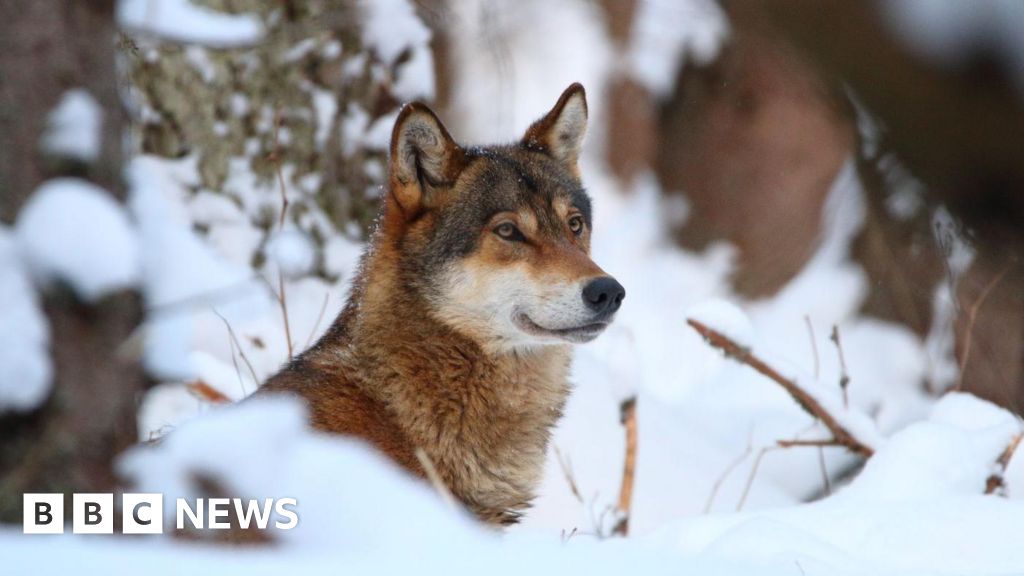Vladimir Putin has sparked Europe’s deadliest conflict since World War 2. This week the number of Russian soldiers killed or seriously wounded reached a new daily high of 1,700. According to US estimates, Russia has now lost 700,000 casualties while Ukraine has sustained 120,000.
Russia’s president claims his actions are a justifiable response to NATO expansion. But Poland, Hungary and Czechia, who joined in 1999, only did so to align themselves politically and economically with Europe, not to threaten Russia.
In fact, Putin’s own willingness to use military force inside the Russian Federation has most encouraged former Soviet satellites to join NATO.
His brutal suppression of separatists in Chechnya led to Romania, Slovakia, Estonia, Lithuania, and Latvia joining in 2004.
Putin’s 2008 invasion of Georgia followed by the 2014 annexation of Crimea have exposed him as an old school dictator. His goal is to recreate the former Soviet Union and restore Russia’s status as a global superpower, despite it having an economy smaller than Italy’s. The full-scale invasion of Ukraine in 2022 has now led Sweden and Finland to join NATO.
To make matters worse, Putin has used nuclear blackmail to discourage Western support for Ukraine. In October 2022, his overwhelming frustration at the lack of Russian progress, and his fury with the West for supplying aid, led the White House to believe that Putin would use tactical nuclear weapons.
The ongoing provision of military aid to Ukraine means that the threat of nuclear weapons has not receded. Our strategy is to provide support, but not enough to trigger unintended escalation. This means we have been unable to contribute what Ukraine needs to force a Russian withdrawal.
After almost 1,000 days of fighting, the war has become an attritional stalemate. It has been costly for Russia both militarily and economically. In addition to human casualties, its army has lost thousands of tanks, armoured vehicles, and artillery pieces.
Failure to achieve his goals has weakened Putin at home and in the eyes of his allies. Despite oil revenues from China, the question is how long can the Russian economy withstand the strain placed upon it? When Putin runs out of soldiers, equipment and money, the only thing left will be his nuclear arsenal.
Donald Trump declared during the run-up to the US election that he could end the conflict in 24 hours. In reality, Putin is unlikely to accept any peace deal that forces him to concede territory he has already taken. Similarly, Zelensky is unlikely to agree to Ukraine to giving up a single inch of soil.
It also needs to be stated that any deal allowing Putin to end the war on his terms would be appeasement. It might lead to peace in the short-term, but it would be a victory that would strengthen him at home and in the eyes of China, North Korea, and Iran. It would give him the breathing space he desperately needs to rebuild his shattered economy and army.
China and North Korea’s massive military inventories could help Putin to regenerate his armed forces in less than five years. However long it takes, a re-constituted Russia would be more lethal, bolder, and less easy to deter.
Even if Putin was content to halt his army where it is now and allow a buffer zone to be established between Russian and Ukrainian forces, he would still be active elsewhere. He wants payback for the support the West has given to Ukraine. So we can expect Russian proxies to cause mischief in Africa and the Middle East.
He will sponsor Grey Zone operations in Europe, including sabotage, disinformation, hacking, and he will interfere in our democratic processes.
Most important, allowing Putin to get away with unprovoked aggression would send a terrible message to China. It might feel empowered to seize Taiwan. We must hope that Trump understands and accepts the risks posed by Russia and China, and how any response he might make could make a wider conflict more rather than less probable.
Should Trump terminate US support for Ukraine, European nations would need to shoulder this responsibility or let Ukraine fall into Russian hands. Whatever happens, we need to spend more to defend ourselves. During his previous administration, Trump stated that members of NATO needed to achieve a target defence budget of at least 2% of GDP.
This was before Russia invaded Ukraine. Recent events will only increase American pressure on Europe to ramp-up spending beyond this level.
Worse still Trump could decide to reduce the USA’s commitment in Europe to focus on China. In this scenario, even spending 4% of GDP on defence would not be enough. Ultimately, Putin’s invasion of Ukraine has created the most dangerous, volatile and unpredictable geopolitical environment since WW2.
The UK’s response to this has barely offset the impact of inflation on defence, let alone expanded our capabilities. Our parents considered themselves part of the post-war generation, but if we don’t start to take Russia seriously, our children will be part of a pre-war generation.

 2 weeks ago
7
2 weeks ago
7










 English (US) ·
English (US) ·